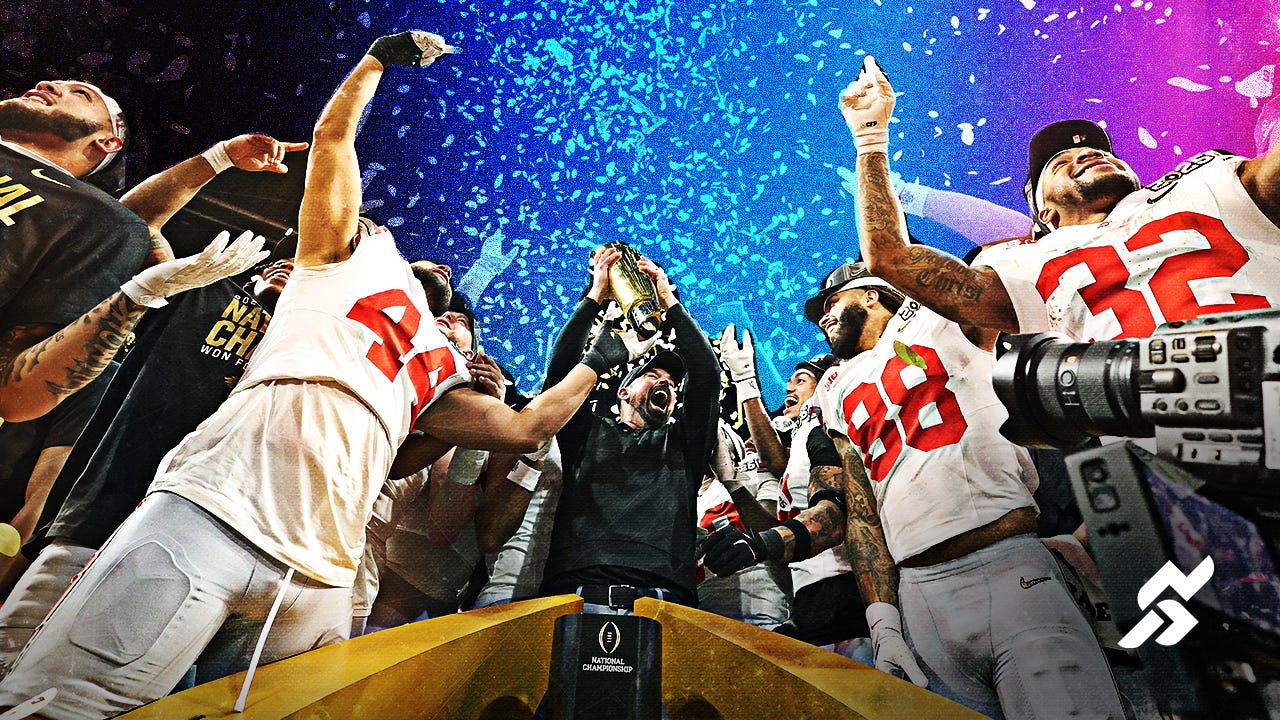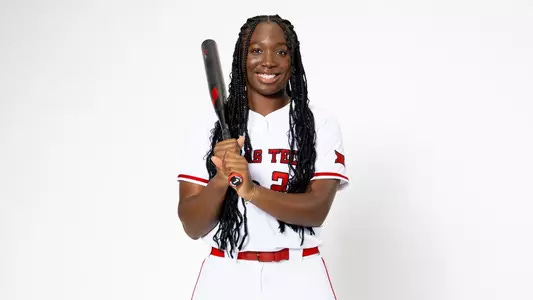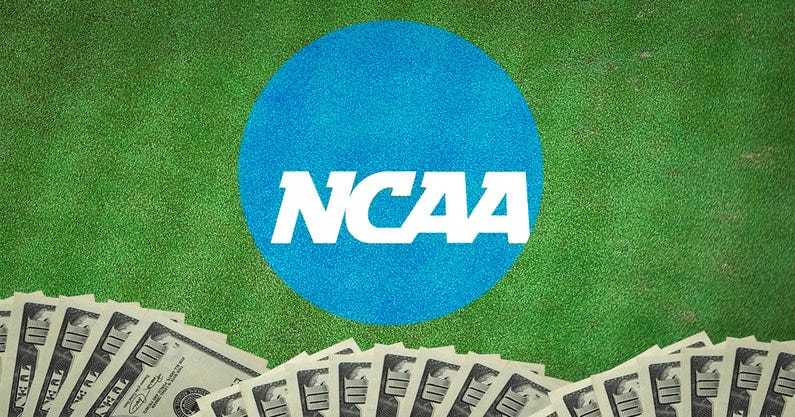House Settlement Back Pay Put on Pause after Appeal, Penn State and UCLA Take Elevate Private Equity Deals, ICYMI, & More | NIL Newsletter #336
Today’s Thursday newsletter includes highlights from this week, important news from last week, and what to watch for.
This Thursday’s Newsletter Includes:
1. House Settlement Back Pay Put on Pause after Recent Appeal
2. Penn State and UCLA Take Private Equity Deals with Elevate
3. Quick Hitters
4. ICYMI: NiJaree Canady Breaks the Softball NIL Ceiling at $1 Million
5. What to Watch For: How June NCAA Meetings Could Affect the Current Gambling Rules
🏆Major News
House Settlement Back Pay Put on Pause after Recent Appeal
The $2.56 billion settlement in the House v. NCAA Settlement, which promised retroactive NIL payments to athletes from 2016–2024, has hit a major legal snag just weeks before initial distribution.
On June 11, eight former women’s college athletes filed an appeal in the Ninth Circuit Court, claiming the proposed payout structure violates Title IX by disproportionately favoring male athletes.
The appeal argues that nearly $1.1 billion in damages has been unfairly excluded from female athletes' share, citing systemic underrepresentation in revenue-generating sports.
With this legal challenge now pending, the scheduled July 21 payout date has been suspended, leaving thousands of eligible athletes—including household names like Zion Williamson, Joe Burrow, and Baker Mayfield—in limbo.
Legal experts suggest the appeal could delay distribution by several months and potentially reshape the way gender equity is considered in NIL-era financial remedies.
The NCAA and co-defendant conferences have not yet issued a formal response, but observers say this case could set national precedent for how Title IX applies to retroactive compensation.
Penn State and UCLA Take Private Equity Deals with Elevate
On June 10, it was reported that Elevate Sports Ventures had launched a new $500 million initiative to bring private investment into college athletics, backed by Velocity Capital and the Texas Permanent School Fund.
The report named Penn State and UCLA as Elevate’s first two institutional partners, citing sources who claimed both schools had signed on to receive direct capital funding for athletic infrastructure, NIL programs, and revenue generation platforms.
The reaction was immediate: both schools issued swift denials. UCLA Athletic Director Martin Jarmond stated that while Elevate is a longtime ticketing and fan experience partner, there is “no private equity arrangement” or capital partnership in place.
Penn State followed suit, clarifying that Elevate only handles ticketing and sales operations, and refuting any agreement to accept outside capital as described in the article.
The controversy underscores growing tension around the use of private equity in college sports, particularly as schools face mounting costs from the House v. NCAA settlement, NIL compliance, and escalating media rights demands.
While Elevate maintains that its model is non-controlling and designed to provide strategic growth capital, many administrators and observers worry it could erode institutional autonomy and open the door to long-term commercial influence over public athletic programs.
📌Quick Hitters:
MLB Exec Named CEO of New NIL Oversight Body – Bryan Seeley, former MLB senior vice president of investigations and deputy general counsel, has been officially appointed CEO of the new College Sports Commission, which will oversee NIL compliance under the House v. NCAA settlement. 🔗 LINK
Greg Byrne Says the NIL Review Board Won’t Punish Athletes – Alabama AD Greg Byrne clarified that the upcoming NIL deal clearinghouse under the House v. NCAA settlement is designed to flag questionable deals—not penalize athletes—while helping ensure Title IX and fair-market compliance. 🔗 LINK
Ohio State QB Commit Gives Back Through NIL – 2027 commit Brady Edmunds donated $2,000 from his NIL earnings to Nationwide Children’s Hospital in Columbus, highlighting how high school athletes are now starting to use use NIL for philanthropy. 🔗 LINK
ICYMI
NiJaree Canady Breaks the Softball NIL Ceiling at $1 Million
The Texas Tech ace has partnered with The Matador Club. The deal features a seven-figure guarantee, plus revenue share from a new apparel line. It is the first seven-figure contract in college softball history, placing Canady among the top-20 women’s NIL earners across all sports.
Why it Matters:
A bona-fide, publicly acknowledged $1M establishes hard market evidence for the growth of this women’s sport. Future softball phenoms (and Olympic sports more broadly) now have precedent to demand six- to seven-figure guarantees. That will reverberate in Title IX audits when schools allocate their $20.5M House revenue-share pools. Power-conference softball arms just gained a market comp; G5 programs may struggle to retain stars without similar pools.
Also note that the deal arrived after Canady’s transfer-portal flirtations. Expect non-revenue sports to use similar mega-deals as retention weapons, not just recruiting bait.
More on the deal specifics:
Here, Matador is functioning more like an endorsement agency than a “supplemental-stipend collective.” Deloitte’s forthcoming NIL clearinghouse (triggered if House is approved) will scrutinise whether the revenue split reasonably matches Canady’s provable media value.
As it stands, the $1M will be guaranteed cash paid out over 12 months. The equity upside that exists includes the percentage of profits on a new apparel line for Canady, as well as pitching clinics.. The current activation load includes 10 in-person events, 20 social media posts, and 2 branded content shoots.
What To Watch For: How June NCAA Meetings Could Affect the Current Gambling Rules
The NCAA's Division I governance bodies are meeting this month in Indianapolis, with a landmark proposal on the table: allow student-athletes and staff to legally wager on professional sports, while maintaining and strengthening restrictions on college sports gambling.
The proposed policy shift follows April's 21–1 vote by the Division I Board to begin deregulating betting rules to match the legal landscape in over 30 states where sports gambling is now permitted.
The new policy framework would introduce “safe harbor” protections—allowing athletes who report gambling issues to receive support without fear of punitive action, a significant step toward harm-reduction.
At the same time, enforcement of rules around college sports betting will likely intensify, with particular attention on prop bets involving individual player performance, which have been linked to harassment and integrity concerns.
Industry analysts expect the NCAA to invest in new compliance tools and third-party monitoring systems, especially as gambling lines become more embedded in media coverage of college sports.
If passed, the NCAA’s updated policy could take effect ahead of the 2025–26 academic year, aligning athletic departments with broader shifts in state law while drawing a clearer boundary between legal betting and sport integrity.
Thanks for Reading!
Keep up to date on all of our newsletters and content by checking out past Optimum Sports Consulting Newsletters and following us on Twitter!










